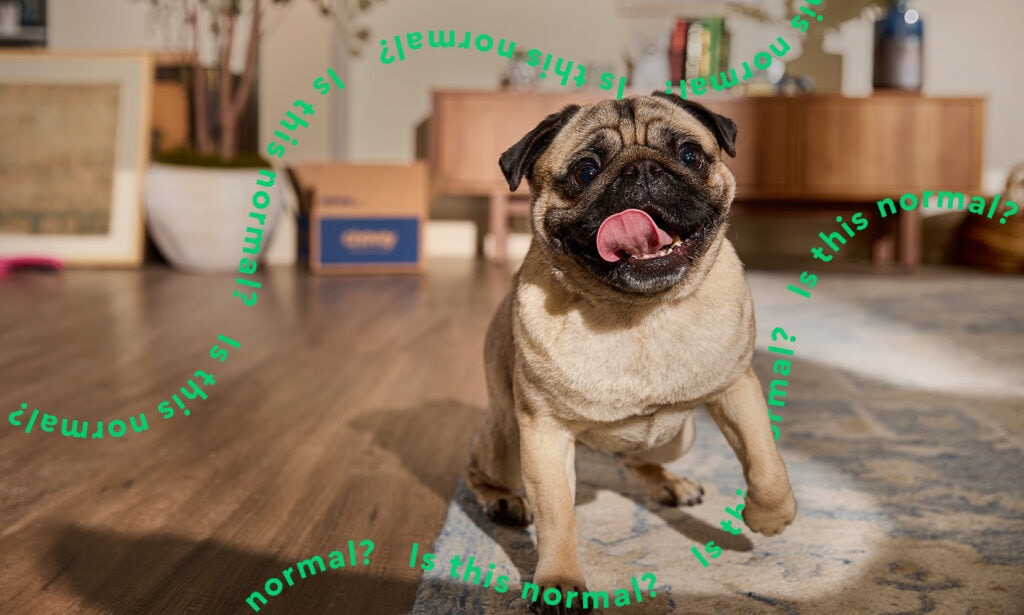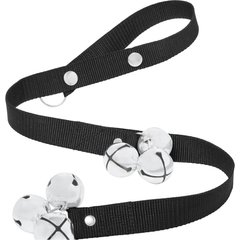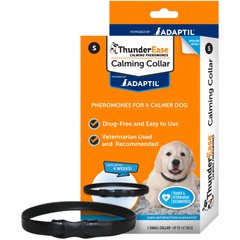My Dog Pees When Excited—Is This Normal?

Photo by Chewy
Q: Sometimes, my puppy is so happy when I come home from work that I notice a puddle of pee on the floor as I walk through the door and greet him. Is it normal that my dog pees when excited, or should I be concerned?
A: While this behavior can be common in puppies younger than 6 months old, it isn’t considered normal if it happens persistently, because it can often indicate unresolved anxiety and training gaps. In some cases, this can be a sign of an underlying health issue, particularly in adult or senior dogs.
We spoke to experts to learn why dogs pee when excited, how to prevent this behavior, and when there may be a potential cause for concern.
Why Do Dogs Pee When Excited?
Excited peeing in dogs is an involuntary response to overstimulation, and the level of stimulation varies by dog, says Erin Askeland, CPDT-KA, CBCC-KA, a certified dog trainer in the Atlanta area and Camp Bow Wow’s animal health and behavior expert.
She adds that this behavior should be addressed through veterinary care, managing greetings and play to reduce stimulation levels, and using positive training methods.
Here are some common reasons why your pooch might urinate when excited:
Their Age
A dog’s age can play a significant role in why they pee when they get excited—especially in puppies. For these small and curious canines, the world is new and fascinating with so much to learn and explore!
Because they’re so young, they lack specific abilities, like bladder control. Their sphincter muscles, which are responsible for controlling urine flow, don’t fully develop until they reach about 6 months old, says Sabrina Kong, DVM, of Jules Veterinary Center in Tracy, California, and veterinary consultant at WeLoveDoodles.com.
Until your pup grows up and can hold their pee, it’s a good idea to use training pads, like the Frisco Premium Potty Pads, in the meantime.
Recommended Product
They’re Not Fully Housetrained Yet
If a dog pees when excited, it could be because they’re learning when and where it’s appropriate to go to the bathroom.
“Excitable peeing can also happen when a dog isn’t fully housetrained yet, meaning they’re still a work in progress,” Askeland says.
Some items that may come in handy while your four-legged friend is being potty trained include toilet training bells, like the Frisco Potty Training Dog Bell, and a stain remover, like Nature’s Miracle Enzymatic Formula Urine Destroyer Plus.
Recommended Products
They’re Happy or Overstimulated
Askeland says this behavior can occur when a person greets a dog with excessive enthusiasm—such as using a high-pitched voice, displaying high energy, making direct eye contact, or offering physical touch.
Dogs may also pee when they’re overstimulated. This feeling can happen during high-energy play or games with another dog or human, or when a pet parent returns after a long absence.
They’re Timid or Feel Uncomfortable
Submissive peeing in timid dogs is known as submissive signaling. Dr. Kong says this type of peeing happens when a dog with a “higher status” human or dog greets them.
She notes that certain dog breeds with sensitive temperaments, such as Shelties and Cavaliers, or rescue dogs with uncertain histories, are disproportionately affected due to heightened nervous system reactivity.
Submissive urination can happen when a dog feels threatened or uncomfortable.
Askeland says to watch for these signs of submissive body language:
- Rolling onto their back and exposing their belly
- A tucked tail (often tucked around their genital area)
- Flattening their body to the ground
- Cowering or shaking
- Avoiding eye contact
- Flattening the ears
- Turning their head away from the source of the threat
They Have a Medical Issue
Less commonly, Dr. Kong says, medical issues such as urinary tract infections (UTIs) or bladder stones can mimic excitable urination.
If you notice a sudden onset of this behavior in adult dogs or the issue isn’t improving with management and training, our experts recommend consulting your veterinarian to rule out any potential medical problems.
How To Stop a Dog From Peeing When Excited
As long as there isn’t a medical cause, Askeland says pet parents can help stop their dog’s submissive peeing.
Try these expert-recommended tips on how to help stop your dog’s peeing when excited:
- Rehearse calm, quiet greetings. Dr. Kong suggests greeting your dog calmly by ignoring them for five minutes after arriving home to reduce overstimulation.
- Provide alternative responses. Examples include getting a toy, like a KONG, or a wag-worthy dog treat, like the Hill’s Soft & Chewy Training Treats.
Recommended Products
- Practice polite greetings. Askeland says polite greetings are characterized by keeping all four feet on the floor, sitting, and waiting for a cue before approaching.
- Continue potty training with a consistent schedule and use positive reinforcement to encourage going potty outdoors. Consistency and rewards help set your pup up for success.
- Whenever possible, let your puppy go potty before any guests arrive or greet them. Dr. Kong says you can also take them outside before triggers and have guests meet your furry friend in the yard, where accidents are less likely to be a problem.
When working to prevent your dog from peeing when they’re excited, expect a few accidents—and that’s OK! The most important thing, Dr. Kong says, is never to punish them, as it makes submissive urination worse.
Should I Worry About My Dog’s Excited Peeing?
Generally, Dr. Kong says excitement urination is nothing to worry about. This is especially true if it’s confined to situations of high arousal and seen in puppies or young dogs.
But if the behavior persists or worsens into adulthood, or if it starts suddenly in an older dog, it’s best to reach out to your vet.
In some cases, inappropriate urination can be a sign of an underlying medical issue, such as:
- UTI
- Bladder stones
- Kidney disease
- Hormonal imbalances that affect bladder control
“Certain medications can also cause or exacerbate inappropriate urination,” Dr. Kong explains. “For instance, corticosteroids are well known for increasing thirst and urination, and some diuretics used for heart conditions can also have this effect.”
FAQs About Excited Peeing in Dogs
What is dog submissive peeing?
Submissive peeing is an involuntary response that’s more common in puppies but can also occur in adult dogs, Askeland says. It may occur due to perceived threats, such as a raised or stern voice, direct eye contact, or rapid movements.
It’s essential to rule out medical conditions to effectively address the issue, whether through veterinary care, positive training methods, or confidence-building exercises.
Do dogs grow out of submissive urination?
It depends. Most puppies outgrow submission urination by the time they’re 1 year old with consistent confidence-building, Dr. Kong says. However, others require behavioral support.
For chronic cases, she recommends Adaptil Calming Collars and confidence courses that teach touch-targeting or obstacle navigation.
Recommended Product
Why does my puppy pee when excited?
A puppy may pee when excited because they’re young and can’t “hold it” until they reach maturity between 6 months and 1 year of age.
How long does excitement urination last?
“Excitement urination typically lasts as long as the dog is experiencing intense excitement, which usually means the duration of the exciting event or interaction itself,” Dr. Kong says.
If a dog continues to exhibit excitement urination into adulthood, this may require specific management strategies or training interventions.
Why does my dog pee when I come home?
There are several reasons why a dog might pee when you come home. It could be a sign of excitement, submissive urination, incomplete housetraining, or a possible medical condition.









